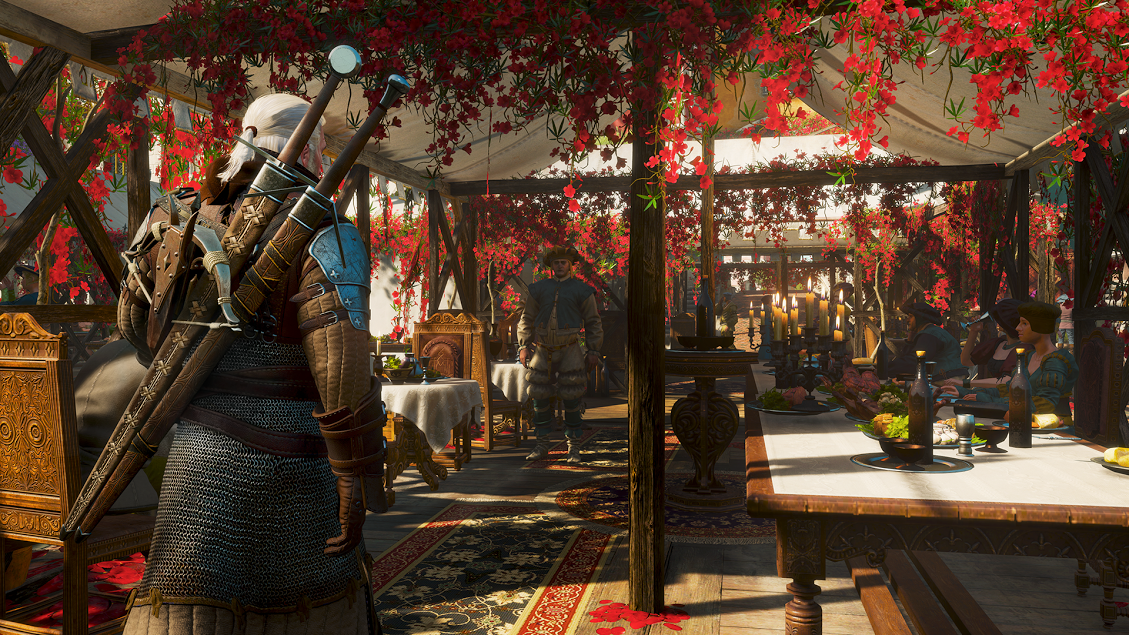
CD Projekt Red released The Witcher 3: Wild Hunt in May of 2015, and critics have been raving about it in consensus, describing it as a truly remarkable and worthwhile gaming experience. While it won a number of Game of the Year awards last year, it has continued to be one of the best games to play in 2016. Set in a nightmarish fantasy world of assassins, monsters, and mythical beasts, The Witcher 3: Wild Hunt is an open world, action role-playing video game, and the main story involves the Wild Hunt and its sinister quest. Gamers can, however, also lose themselves in the lavish countryside, and seek out side-quest adventures that elevate their game experience.
The audio experience achieved by CD Projekt Red in The Witcher 3: Wild Hunt was surreal. The music in this game is an immersive story of its own, while the level of attention to detail with every consideration ensures that every sound participates in transporting the gamer into a mystical world and captivates them entirely so that the lines between reality and game are ever so blurred.
So, how did they do this?
Under the hood
In this short video, Colin Walder, Senior Audio Programmer, presents the audio team behind The Witcher 3: Wild Hunt, and introduces some context and perspective about their decision to adopt Wwise.
- Krzysztof Lipka – Sound Team Coordinator
- Paweł Daudzward – Sr. Sound Designer
- Marcin Przybyłowicz – Music Director / Composer
- Colin Walder – St. Audio Programmer
Ambience
Just before playing some examples of dynamic ambiance, Paweł presents the initial goals for ambiance in the game, such as having:
- Enough content to fill this huge open world
- Sound variations to avoid repetition
- Mechanisms to mimic real world
- Control mixing on the fly for storytelling purposes
- Straightforward implementation
Paweł then shows how their global weather system has been implemented in Wwise using Blend Containers reacting to wind intensity parameters, rain, and thunderstorms. Custom locations are handled by local ambiences that override the global weather system using an RTPC attached to volume.
Animals are integrated as ambiences as well, reacting to parameters such as time, wind and rain intensity.
Colin concludes the ambience portion by demonstrating how it has been implemented in code. He describes this part as “handcrafted” as to provide as much control as possible for the sound designers. He concludes this section of the presentation by explaining how ambient sounds were triggered from geometric volumes set by the team to create ambient zones that follow the listener inside, but that will stay clamped to the zone boundaries when the player exits the area.
Crowd & Walla, and SFX
Another objective for The Witcher 3: Wild Hunt audio team was extending ambiences to allow for a better sense of presence in regards to surrounding crowds and Walla sounds. These sounds move and turn around the player. To get a certain sense of proximity and orientation, the crowd system was separated into four quadrants that would calculate the proximity and number of NPCs before sending this information to Wwise through game parameters. This system also tracks if the NPCs are inside or outside as well as their States, such as afraid or not afraid. The automatic volume generation for trees and rivers is also quite impressive.
Colin then follows with the tools they’ve made available to sound designers for tagging animations, timeline editing, attaching Events to bones, distance culling, and so on. Elements such as how bushes and plants could emit sounds when the main character is walking by were also presented.
Stay tuned for part 2 of this blog and, in the meantime, let us know if you'd like to be invited to the next series of Wwise Tour game audio presentations.
Audiokinetic wishes to thank CD Projekt Red and everyone on The Witcher 3: Wild Hunt team. Thank you for assembling this fascinating educational presentation and sharing it with the Wwise and interactive audio community. Game audio at its finest, these series of Wwise Tour videos are a must watch. We hope you enjoyed them and that you will want to share them with your fellow game audio peers!


Comments
Dejan Petrovik
November 29, 2016 at 03:39 pm
Great tour! Thanks